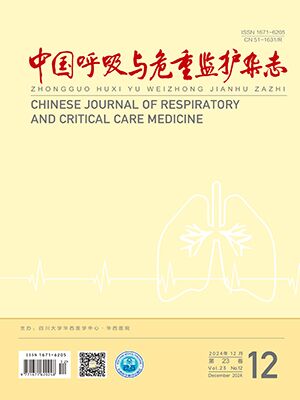Objective To determine if supervised hospital-based exercise can maintain the benefits of functional exercise ability and quality of life gained from a pulmonary rehabilitation program in COPD.Methods A prospective and randomized study was carried out. Following completion of an eight-week pulmonary rehabilitation program in hospital, 43 COPD patients were recruited and randomized into either a supervised group ( supervised, every 10 days, hospital-based exercise, 22 cases ) or a control group ( unsupervised home exercise,21 cases) and followed for 12 months. Measurements were taken at baseline and 12 months later. Exercise measurements include six-minute walk test( 6MWT) and pulmonary function test. Quality of life was measured using the Chronic Respiratory Questionnaire ( CRQ) . Results After 12 months of different exercise program,6MWT in the supervised group was significantly longer than that in the unsupervised group[ ( 532. 0 ±168. 4) m vs ( 485. 0 ±151. 6) m, P lt; 0. 05] . There was no significant difference in pulmonary function between the two groups. The quality of life of the supervised group was higher than that of the unsupervised group( 114. 6 ±20. 8 vs 105. 6 ±21. 7, P lt;0. 05) . Conclusions After the completion of pulmonary rehabilitation program, a supervised, every 10 days, hospital-based following exercise program can maintain better functional exercise capacity and quality of life compared to home exercise in COPD patients.
Citation: MENG Zhigang,SHE Ruifang,YAO Bin.. Effects of Supervised Periodical Exercise Programs on Maintaining Functional Exercise Capacity and Quality of Life after Pulmonary Rehabilitation in COPD. Chinese Journal of Respiratory and Critical Care Medicine, 2010, 9(2): 133-136. doi: Copy
Copyright © the editorial department of Chinese Journal of Respiratory and Critical Care Medicine of West China Medical Publisher. All rights reserved




